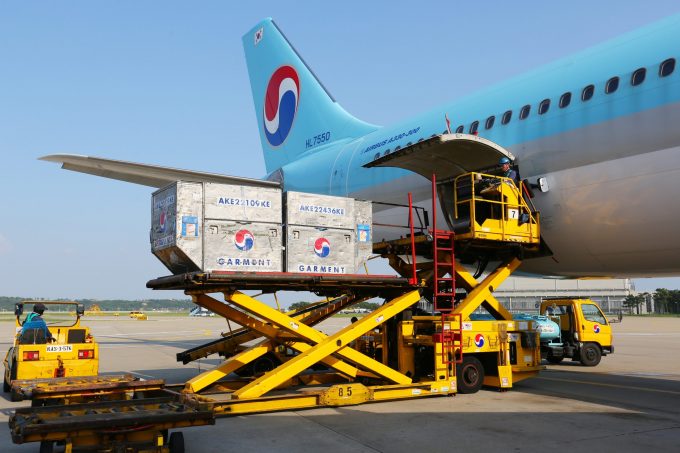Soaring air freight rates may level out as summer capacity takes off
Airfreight rates have soared this month, as the market continues to be propped up by ...

The South Korean government is acting again to secure freight capacity for exporters, but this time, air freight is being procured, for small and medium-sized enterprises and start-ups.
An arrangement with Korea SMEs and Startups Agency (KOSMES), working with Korean Air Lines (KAL) and US courier group DHL’s South Korean branch, to fly cargo at discounted rates will start this month, and continue to the end of the year.
Every week, KAL will reserve up to 12 tonnes of capacity for South Korean SME.s for Incheon-Hong Kong and Incheon-Hanoi flights.
Air cargo routes from Incheon to Hong Kong and Hanoi are in high demand, as the latter cities are gateways to southern China and southeast Asia. A survey of South Korean SMEs found that Hong Kong was the most popular export destination for air freight, while Hanoi was ranked third.
KOSMES said: “This support is expected to meet SMEs’ export demand, contributing to stabilising logistical requirements in preparation for the increase in cargo volume in the second half of the year.”
With DHL, KOSMES is arranging for discounted air transport for SMEs whose volumes are small.
KOSMES said: “Through this, the logistical costs for e-commerce retailers, whose cargoes are of small scale, will be lowered.”
Head of global growth division at KOSMES, Kim Moon-hwan, said: “Demand for air transport is increasing because e-commerce is growing, and there are many SMEs who are experiencing difficulties due to rising transportation costs. We will provide active support to ease the burden and maintain export growth.”
In September 2021, KOSMES and the Ministry of Oceans and Fisheries asked all South Korean liner and feeder operators to mobilise ships for ad hoc transpacific and South Korea-southeast Asia sailings.
While container shipping freight rates have been declining, particularly after a three-month lockdown of Shanghai, air cargo data has revealed some signs of improvement.
Xeneta’s Clive Data Services said the slowdown in air freight demand had bottomed out, although August is usually a quiet period. June and July saw year-on-year falls in demand of 8% and 9% – but in August, this tailed off to 5%.
Comment on this article